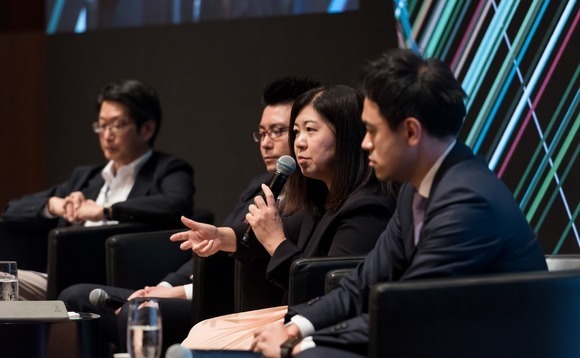
Investors call on Japanese start-ups to pursue overseas capital - AVCJ Forum

Japanese start-ups must attract more institutional capital from overseas given the paucity of local investors, especially in the growth stages, the AVCJ Japan Forum heard.
"This is really simple. It's only about returns. They don't care about stories," said David Milstein, a managing partner and head of Japan at Eight Roads Ventures, in reference to overseas investors. However, many start-ups pursue domestic IPOs before they have reached critical mass, which makes it harder to generate the kind of returns that these investors are looking for.
It takes time to build a global business or even a regional business, and companies in other markets do not rush to go public, Milstein noted. He often asks founders about the size of their vision. "If a company is solving a big problem common to airports across the world, for example, it would have big potential to grow globally," he explained.
According to Coral Capital, formerly 500 Startups Japan, there are only 10 unicorns in Japan, but another 41 so-called hidden unicorns reside on the Tokyo Stock Exchange. These are start-ups that were forced to IPO at sub-unicorn valuations due to a lack of access to private late-stage funding. They went on to meet the USD 1bn threshold as public companies within 10 years.
Growth-stage investment in Japan's technology sector has not tracked the vertiginous upward trajectory of other markets, AVCJ Research's records show. It wasn't until 2019 that the USD 200m threshold was crossed, followed by USD 528m in 2020 and USD 917m in 2021. Over the same three-year period, early-stage investment came to USD 1.71bn, USD 1.34bn, and USD 1.99bn.
As a result, the global technology sector valuation correction hasn't been as severe in Japan. Emre Hidekazu Yuasa, a general partner at Globis Capital Partners, attested that early to growth-stage valuations haven't taken a significant hit.
He gave two reasons for this. First, the market never got that overheated in the first place. Second, many Japanese start-ups have been supported by corporate investors, either through captive investment units or through LP commitments to third-party managers.
Nevertheless, growth-stage activity has slowed in 2022, with less than USD 147m put to work in the technology sector as of mid-September. This compares to USD 2.22bn invested in early-stage deals. Yuasa pointed to the challenging IPO market as a contributing factor, noting that some companies will soon have to decide whether to postpone offerings or accept lower valuations.
Japan Investment Corporation (JIC) is one several institutional players looking to increase growth-stage investment. Yuka Hata, head of fund investments at JIC, said the group has a "mission to increase start-ups and unicorns out of this ecosystem," but she called on local VCs to emphasise financial returns. Many have never felt pressure to do this because they've been supported by strategic backers, she noted.
Latest News
Asian GPs slow implementation of ESG policies - survey
Asia-based private equity firms are assigning more dedicated resources to environment, social, and governance (ESG) programmes, but policy changes have slowed in the past 12 months, in part due to concerns raised internally and by LPs, according to a...
Singapore fintech start-up LXA gets $10m seed round
New Enterprise Associates (NEA) has led a USD 10m seed round for Singapore’s LXA, a financial technology start-up launched by a former Asia senior executive at The Blackstone Group.
India's InCred announces $60m round, claims unicorn status
Indian non-bank lender InCred Financial Services said it has received INR 5bn (USD 60m) at a valuation of at least USD 1bn from unnamed investors including “a global private equity fund.”
Insight leads $50m round for Australia's Roller
Insight Partners has led a USD 50m round for Australia’s Roller, a venue management software provider specializing in family fun parks.








